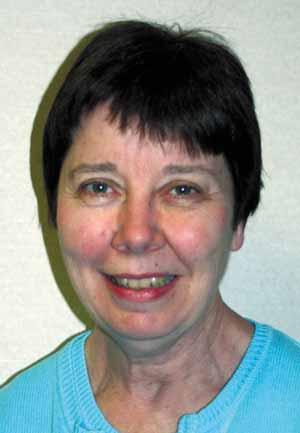
By Alicia Owens
This coming April is Child Abuse Prevention Month. Just seeing these words should remind us of our obligation and responsibility to protect children, young people and vulnerable adults.
If you go to the website usccb.org/ocyp you will see a logo stating “Keeping Our Promise to Protect.” This is a promise we must never turn our eyes away from.
As I was reflecting on this, I reviewed the various categories on the website. One in particular caught my eye, from the National Review Board dated May 2010. It lists “Ten Things Victim/Survivors Taught Us.”
I am sharing them with you in this column:
• We have learned that it takes great courage for a victim/survivor to come forward with his or her story after years, sometimes decades, of silence and feelings of shame.
• We have learned that to the victim/survivor it is so important to finally simply be believed.
• We have learned that, in spite of their own pain and suffering, many victim/survivors are just as concerned that the Church prevents this abuse from happening to more children as they are about themselves and their own needs for healing.
• We have learned that, while each individual’s story is different, what is common is the violation of trust; some survivors trust absolutely no one, to this day, while others have been able to work through this pain with the help and support of loved ones.
• We have learned that today there are methods of therapy that work particularly well with and for survivors of childhood sexual abuse and that individuals can be helped even after many years of unsuccessfully trying to simply “forget about it.”
• We have learned that very many victim/survivors have lived for many years with the belief that they were the “only one” to have been abused by a particular priest.
• We have learned that the abuse has robbed some victim/survivors of their faith. For some this means loss of their Catholic faith, but for others it means loss of any faith in a God at all.
• We have learned that, while some victim/survivors have been unable to succeed in various areas of life (marriage, employment, education, parenting, etc.) as a consequence of the great emotional/psychological harm, others have gone on to lead very healthy and productive lives. We have learned that between those two “ends of a continuum” there is as much variation as there are numbers of victims.
• We have learned that to be privileged to hear an individual victim/survivor’s story is a sacred trust, to be received with great care and pastoral concern.
• We have learned that we still have much to learn.
This list is a gentle, yet powerful, reminder for me, your victim assistance coordinator, especially number 10. I hope this list lends the same message to you.
(Alicia Owens is victim assistance coordinator for the Diocese of Davenport).








